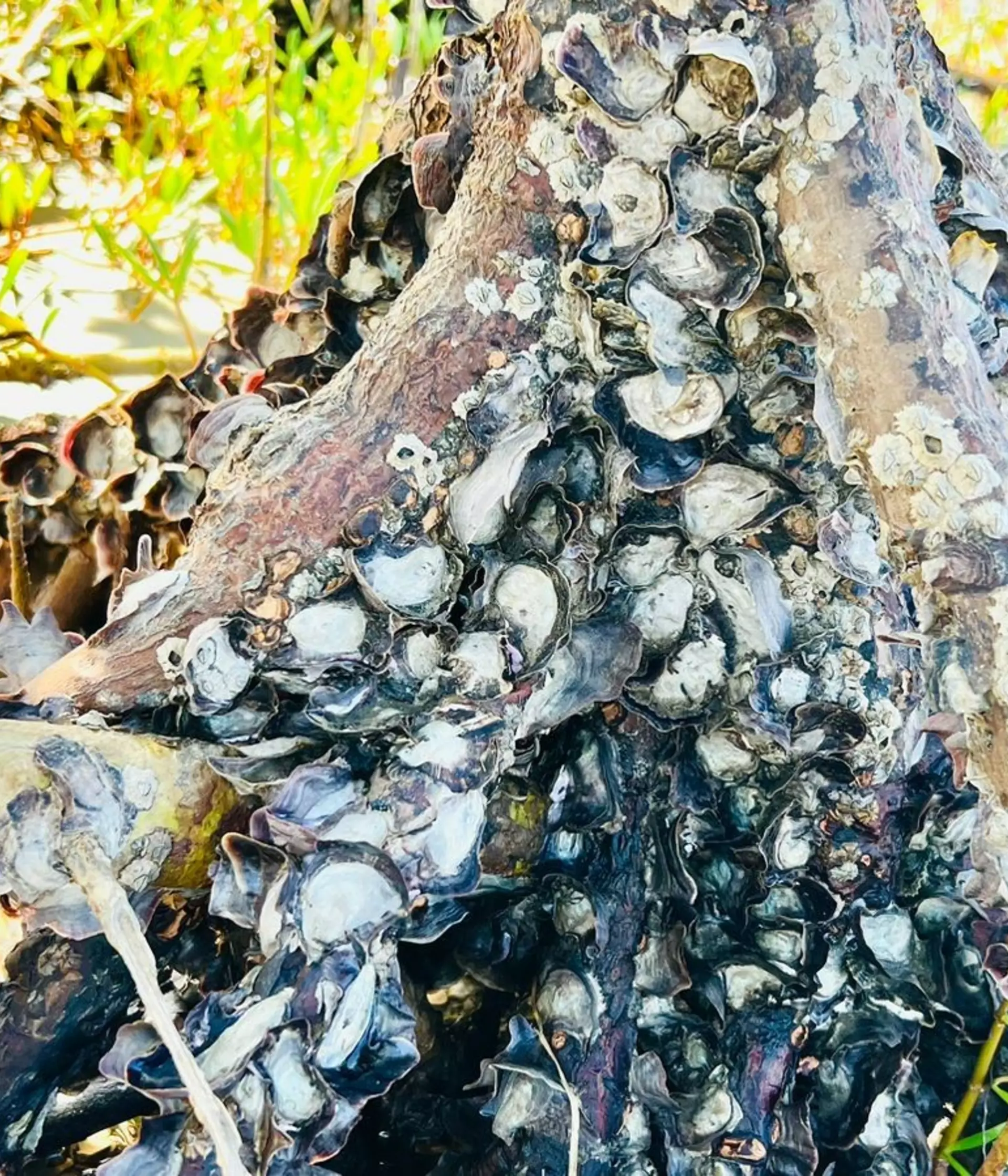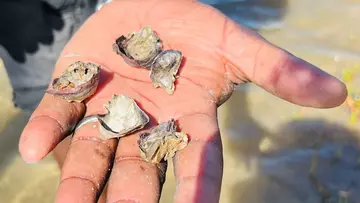
Jérémy Huet
Our Sea Our Life Programme Manager
Northern Mozambique has the highest recorded levels of marine biodiversity in East Africa.
Poverty is widespread within communities here, and they are highly dependent on marine resources for their own subsistence. The Our Sea Our Life project has been working with local fisher women and men since 2013 and has established 70km2 of Locally Managed Marine Areas (LMMAs). These LMMAs support local fishers to manage resources sustainably and protect a variety of key habitats such as seagrass, intertidal areas and mangroves, benefitting the fish and macro-invertebrate species found here.
In addition to this, Our Sea Our Life is seeking to reduce pressure on these key marine systems whilst also creating jobs for these communities by diversifying livelihoods. The project, with support from BIOPAMA, is at present working to support communities to establish bivalve aquaculture within Bandar, Cabo Delgado.

The project initially identified a bivalve farming expert based in Senegal, Khadim, who himself was inspired to establish his own oyster farming company after visiting oyster production units in France. He identified a site in Senegal where he knew oysters were growing naturally and began to farm oysters in oyster bags. However, in his first year of production he faced several challenges which led to high mortality rates – namely, thermal shocks and predation by sea snails. To overcome this, Khadim and his team found floating oyster baskets to use for farming, which protect oysters from predation by snails and ensure that oysters are permanently underwater. Following these adjustments, in the last three years, Khadim and his team have been able to produce between four and six tonnes of oysters each year.
With this information from Khadim, we have identified a company producing floating oyster baskets, Ernesto Sao Simao Lda, with which we agreed to collaborate for the sustainable production of oyster farming in northern Mozambique. In May of 2023, baskets were shipped to our project site in Mozambique, and in June, a member of Khadim’s expert team, Ousmane, travelled to the project site. The project had already identified 20 community members (five women, four displaced people) to form the first oyster farming group in Bandar (with three more to be formed over the next nine months).
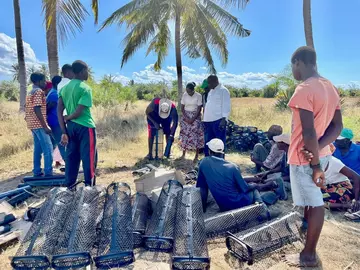
During his trip last year, Ousmane has worked with this oyster group to survey potential sites, looking at salinity measurements and oyster spat found, identifying production area, and training members of the group to conduct these assessments themselves. Subsequently, the group worked with Ousmane to build cement blocks and put these in location, before setting up and attaching the floating oyster baskets.
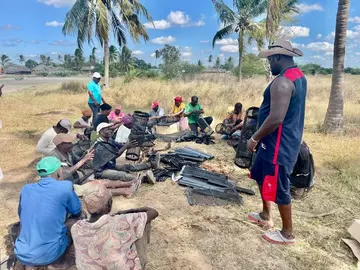
The group of oyster farmers were able to fill 40 boxes with oyster spat collected from an appropriate site.
To ensure that this harvesting process is sustainable, spat collectors were set up to limit collection in the wild. As the oysters grow in the boxes, they will be spread across the empty boxes to ensure they have adequate space.
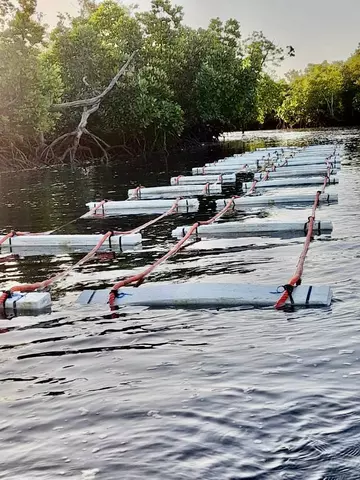
At the time of writing this article, the oysters had grown enough to fill 90 baskets. The project expects that in early 2024 there will be 7,200 oysters ready to sell and in April there will be a further 7,200 oysters to sell. The project is supporting this diversification of income to help vulnerable community members to disengage from unsustainable livelihoods and fishing practices, improving the conservation outcomes of the LMMA we are working in and the community of Bandar rely on.

The project is grateful to the support of the European Union and the Organisation of African, Caribbean and Pacific States through the BIOPAMA Programme.
